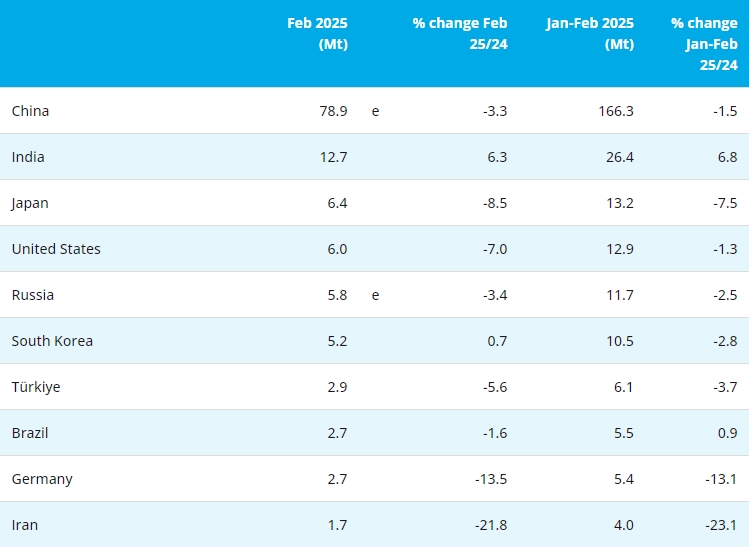[ferro-alloys.com]Germany’s lower house of the parliament passed on Friday a bill to phase out coal-fired power stations in the country by 2038.
The new law entails over €50 billion ($56 billion) for mining companies, power plant operators, affected regions and employees to mitigate the impact of moving from coal to renewables as power source.
“The fossil fuel age is irrevocably coming to an end in Germany with this decision,” Economy Minister Peter Altmaier told lawmakers inside the chamber, urging opponents not to “talk it down.”
Coal-fired power plants operators will be able to compete in auctions to be held from September this year to 2027 for closure compensation payments.
They will also be paid for switching from coal to gas, which emits less CO2.
Plants that are less than 10-years old can apply for direct payments or a transition into a network reserve in exchange for compensation.
All plants must cease operations by 2033.
“Over generous”
The law, which also implies shutting down the mines that feed those plants, sees the government paying up to €40 billion ($45bn) in structural aid to the affected coal states of Brandenburg, North-Rhine Westphalia, Saxony and Saxony-Anhalt over the next 18 years.
Chancellor Angela Merkel’s administration will take further measures worth up to €4.8 billion ($5.4bn) in compensation to employees affected by the coal exit law until 2043, and a further €6 billion to utilities.
Germany’s drawn-out timetable, however, has ignited criticism. Climate activists are not pleased to see coal plants only gradually taken offline over the coming 18 years. They also condemn what they say are “over-generous” payments to energy companies that more than compensate any lost profits.
Analysts have also pointed out that the phase-out plan adds challenges to the European Union’s efforts to cut its greenhouse gas emissions sooner — by at least 40% by 2030.
Most of the 28 EU states aim to become carbon-neutral by 2050 — that is, carbon emissions should be balanced by carbon-reduction measures. Poland, however, relies heavily on coal and has a temporary exemption.
Brown coal
Germany is the world’s largest producer of lignite (or brown coal), which fuels about 19% of the country’s electricity capacity. That type of coal is considered the most polluting kind because its low heat content means more must be burned and it contains a large amount of impurities.
Last week, the German government agreed to a €4.35 billion ($4.9bn) package to phase out those operations by 2038.
The plan is to use a mixture of subsidies and tenders to encourage operators to close hard coal plants beginning this year. Europe’s largest economy currently employs about 250,000 workers in renewable energy sectors.
(Mining.com)
- [Editor:王可]

/E鐵合金企業(yè)庫(kù)4.jpg)

 Save
Save Print
Print Daily News
Daily News Research
Research Magazine
Magazine Company Database
Company Database Customized Database
Customized Database Conferences
Conferences Advertisement
Advertisement Trade
Trade








?bào)/2024/QQ截圖20250402170922.png)
?bào)/2024/微信圖片_20250328161757.jpg)


 Online inquiry
Online inquiry Contact
Contact

Tell Us What You Think